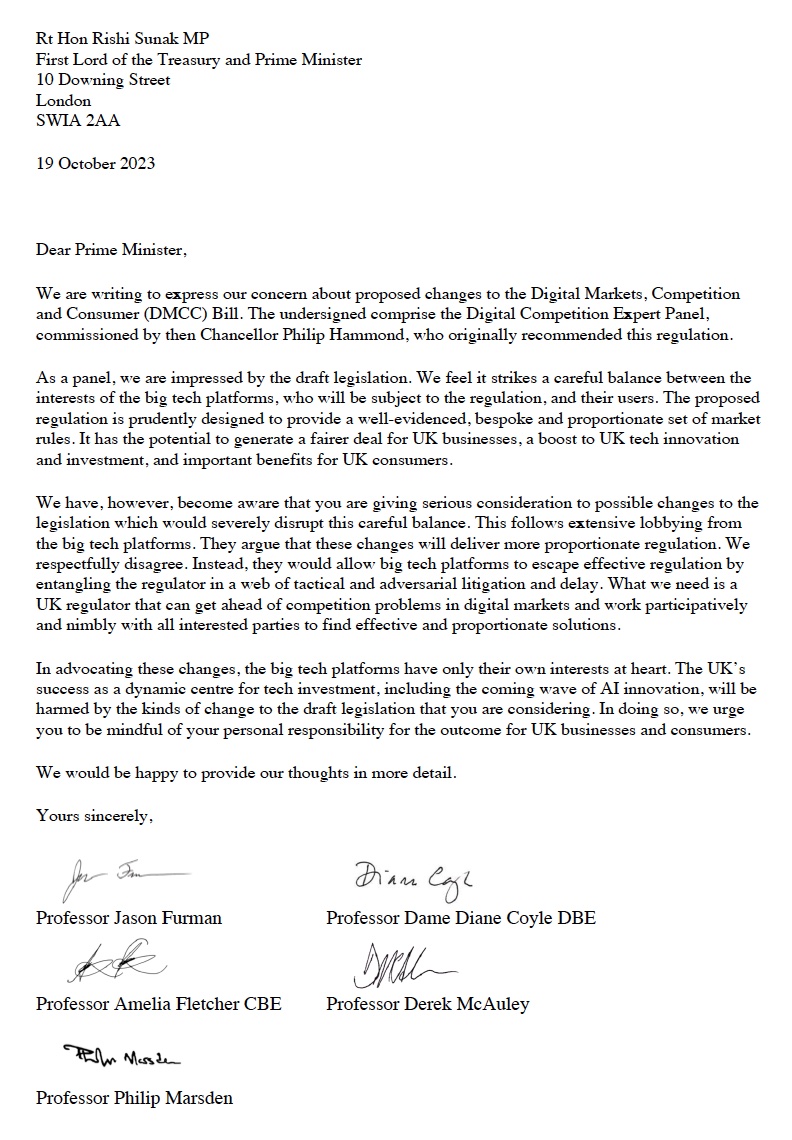Business (monopolies) as usual
I was delighted and privileged to be invited to join the Furman committee in 2018
(and many thanks to my proposer). The mission -
to make recommendations on changes to
competition and pro-competition policy to help unlock the opportunities of the digital
economy. So we did that and published as the Unlocking Digital Competition report.
However, we now have concerns that the government is watering down the panel recommendations in the upcoming DMCC bill…
As background, my research for many years has been about the opportunities and challenges in exploiting personal data in responsible and privacy preserving ways. My ongoing annoyance for all this time is the prevalent corporate surveillance model currently in use that asserts that in order to provide value from my data to me, companies must take a copy of it all (and do lord knows what with it). We have taken a contrarian view in our research via projects such as Databox, looking at data sharing minimising architectures, which has attracted attention from those with some sense of public duty and service such as the BBC.
With this mindset I approached the Furman committee determined to understand why we could not have competition in services and software offering equivalent functionality but competing on grounds of not stealing your data. We had fun discussing that, but an emergent challenge was debunking the BS technical assertions by the companies - for example, interoperabilty was stated as “impossible”, when technically it was a design decision to exclude competitors. (See EU actions in that space…)
Anyway the expert panel made its recommendations, they were happily accepted by the goverment at the time and the plan was set for the new Digital Markets Unit and the legislation to empower it. We produced what we referred to as a pro-innovation model, one in which encumbents could not simply exclude compeition by restrictive practices. (As an academic, I must now propose further reading: I encourage you to read up on why the Sherman Antitrust act of 1890 came into existance.)
Four years later (you fill in the gaps as to why it took four years) the legislation appears and it looks good, but then we find the government plans to weaken it and make it easier to appeal every decision the DMU make and put it through arbitrary legal process. The problem is, that during this litigation process, the monopoly player will continue to extinquish competition and by the time the litigation is over, all the damage to the market has been done.
So not a good idea. We wrote a letter (see below). The FT covered it.
After we had completed our report in 2019, reporting to the then Chancellor, Philip Hammond, he asked if we should be worried about the same bad market behaviour in future technologies - I have to admit I called it wrong back then - I said IoT was going to be the next stitch up.
Turns out it’s AI.
While the tech monsters tie up governments in the nonsense of regulating the non existent existential threat of AI, they will leverage their existing positions to bring AI to market with global products focused on thier profits, while killing all the innovation and competition in their pathway. What we need is AI targetted at addressing societal needs, sensitive to the different cultural contexts across the world - I have just completed a visit to Malaysia and it was the one common thread in every conversation - bad local outcomes based on inappropriate application of “global” AI.
Unless we have the regulators with the teeth, and the will, to stop them.

